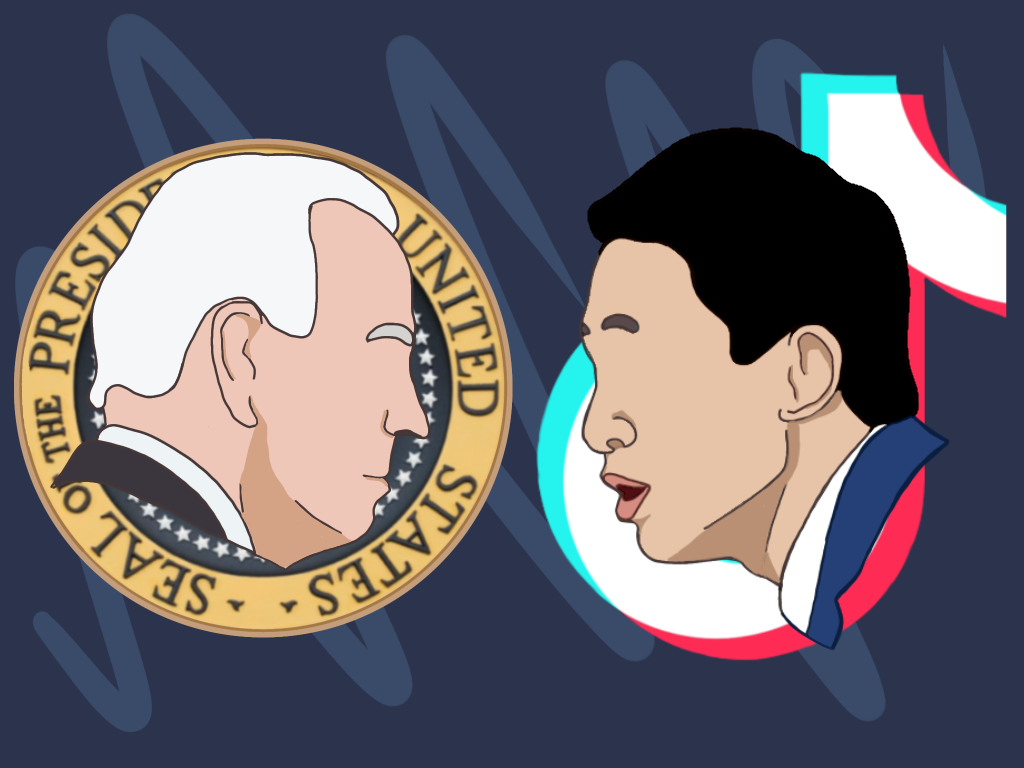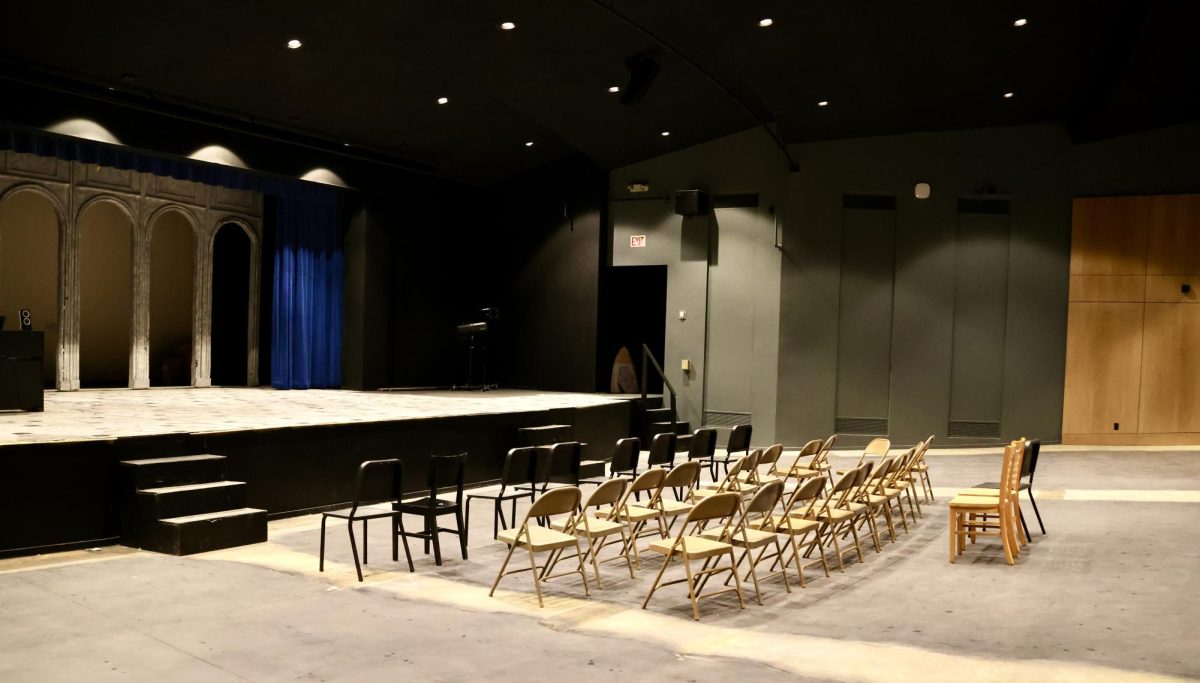Last month, the House of Representatives voted in favor of a bill that, if passed in the Senate, would present an ultimatum to ByteDance, the parent company of TikTok: either sell the app to a non-Chinese owner, or it will be banned in the U.S. By a majority vote of 253-65 in the House, the measure moved on to the Senate, who will need to pass it before it becomes law.
TikTok, the Chinese app that took the world by storm following its international release in 2017, has 170 million U.S. users, who use the app for an hour and a half a day on average. This statistic holds true for many students here at La Salle, for whom the app is an important source of entertainment, information, and connection with their peers.
The ban is being pushed through legislation out of a worry that the data of the app’s users is not being protected. TikTok is owned by tech company ByteDance, based in Beijing, China, and the main concern of supporters of this bill is that the company is beholden to the Chinese government and could potentially be forced to give them the personal data of U.S. citizens.
Though TikTok has long denied it could be used as a tool of the Chinese government, supporters of the bill vehemently insist on the app’s potential corruption and argue that it is a risk to national security with the amount of influence it has over the American people.
In a letter to Senate Majority Leader Chuck Schumer, former Vice President Mike Pence said, “There can be no doubt that this app is Chinese spyware and that a sale to a non-foreign adversary company is in the best interests of the American people.”
Opponents of the measure, however, reject the bill based on the idea that banning TikTok is unnecessary, and insist that removing the popular social media app may be an infringement on the basic American right to free speech.
“One of the key differences between us and those adversaries is the fact that they shut down newspapers, broadcast stations, and social media platforms. We do not,” Rep. Jim Himes said. “We trust our citizens to be worthy of their democracy. We do not trust our government to decide what information they may or may not see.”
Those who oppose the bill claim that the Chinese app is not the only social media platform that collects user information, and call this kind of targeted legislature “xenophobic showboating.”
Mirroring the mixed stances within the House and Senate, La Salle’s TikTok users hold differing opinions on the ban and the app in general.
Sophomore Serafina Preciso expressed a sentiment common to many high-school age teens — that the app is an important form of expression and an outlet both for creativity and anxiety.
“I’m thinking it’s likely to go through, but I do think a lot of people will fight it if given the opportunity,” Preciso said.
TikTok isn’t just a form of expression for teens — it hosts millions of small businesses that rely on the social media platform for business promotion and sales, and for some people, TikTok is their livelihood and main source of income.
TikTok CEO Shou Zi Chew posted a video to the official TikTok account stating just that, saying that he would be testifying before Congress later that week to “share all that [they’re] doing to protect Americans using the app.”
While the probability of its success is uncertain, the House bill reflects real concerns of lawmakers not just in America, but around the world. On Thursday, March 14, British authorities said they are banning TikTok on government-issued phones on security grounds. This action follows a similar move of the European Union’s executive branch, in which TikTok was temporarily banned from employee phones. Denmark and Canada have also announced efforts to block it on government-issued phones.
The ban still has a long way to go before it can be turned into law, but freshman Mercy Gobana noted that the measure is progressing through legislation abnormally quickly, and expressed concern for how much the removal of the app would affect kids her age.
“A lot of the things that we have in our generation are mainly from TikTok, and I feel like it’d be kind of odd to have it in different social media platforms,” Gobana said.
This isn’t the first time the popular video-sharing app has come under fire — in 2020, former president Donald Trump spearheaded the effort to implement a ban against TikTok, issuing an executive order that demanded the app be sold to an American owner or shut down.
In retaliation, TikTok sued the U.S. government on the grounds that they were denied due process, and requested a preliminary injunction to delay the app-store ban before it could take effect. Once he took office, President Joe Biden rescinded the executive order, killing momentum for the ban.
Preciso, who was a user of TikTok in 2020, was against it. “That’s how people expressed themselves during the pandemic,” she said.
Four years later, TikTok is facing the threat of a ban once more, and the perspectives of both presidents seem to have swapped. Biden has stated that he will sign the bill if it reaches his desk. Meanwhile, former President Trump’s stance has shifted in support of the app. He reasons that if TikTok is made unavailable to American citizens, then Facebook, a company that Trump considers to be an enemy, will gain the upper hand.
“With the upcoming election, it’s kind of an attention grabber, like a ‘vote for me and I’ll do this’ type of thing,” sophomore Charlotte Robinson said.
Regardless of party affiliation, the perspectives of the House and Senate are quite varied, with some Democrats voting against the measure and some Republicans voting for it in conflict with their respective candidates.
“I’m sure they see the logic behind it,” Robinson said. “People are probably going to be really upset, and I’m sure they want to also appease the people with their choices, so I’m sure they don’t want to go either way.”
Sophomore Gracie Roca, despite being a user of TikTok, thinks that the app being banned would be a positive thing. She mentioned that while TikTok is entertaining, there are other social media apps that do the same thing, and its ban may also help to lessen the amount of time she spends on screens.
“I feel like I’m really attached to my phone, and then TikTok doesn’t help,” Roca said.
If the bill is made into law, ByteDance will have no further access to the data of its 170 million American users, but those users will lose what many of them feel is an important outlet for creativity, and millions of small businesses will lose their platform. TikTok’s ownership consists of 60% global investors, 20% employees, and 20% founders, meaning that there are quite a few groups of people who would be affected if TikTok were to be banned in the U.S.
It still has to pass through the Senate, and views on it are a mixed bag, both within the U.S. government and the La Salle student body. It’s still too early to tell for certain whether or not TikTok will be banned within the U.S., but if it is, it will certainly leave a seismic impact, good or bad, on all levels of American society.








